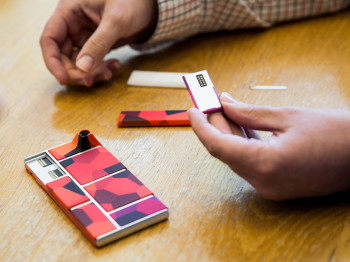
Google planning to sell Project Ara modules in new online store
There’s been a lot of speculation regarding Project Ara and how Google would look to handle distribution of modules. Project Ara, if you don’t know, is a work-in-progress experiment by Google to create a smartphone platform that allows users to choose the features and parts they want.
This is done through the use of modules, which are Lego-like pieces you slot into a smartphone frame however you wish. Such a product would let users choose between different display sizes and resolutions, camera sensors and storage, connectivity modules and more. Don’t need a camera on your smartphone? You don’t need to buy one. And all these modules will be made by not only Google, but anyone who has enough skill to make one to the specifications laid forth by Google.
So how are all these modules expected to be sold? Early rumors suggested vending machines and kiosks, though logistics for that sort of thing are tough to figure out when you anticipate modules being manufactured by many different sources. Instead, Google has decided to go the tried and true route of selling them via an online marketplace.
Google revealed that much to PC World in a recent interview. The modules will be sold through their own site akin to Google Play. Third-party merchants will be able to list their modules here, too, and — much like Google Play — users can rate and review modules to make it easier for everyone to find the best of the best.
Google also touched on what they hope and expect to see from module manufacturers once Project Ara hits. Aside from typical smartphone-necessary components such as displays, processors, storage and cameras, Google expects to see all sorts of interesting sensors for the health field, components for video gaming and more crop up.
The possibilities for what you can do with Project Ara should be nearly endless, though the company isn’t shy about admitting that it’ll take some time before the dream is fully realized. They’re not expecting to be able to run their first consumer trials until some point in 2015, and a wide-scale consumer launch won’t happen until Google feels confident they’ve knocked out all the kinks and figures out what does and doesn’t work well.
It’s an ambitious project so it’s not surprising that they want to take extra care and make sure they get it right. Now it’s up to the users to find out if their patience is as strong as Google needs it to be as we wait its arrival.